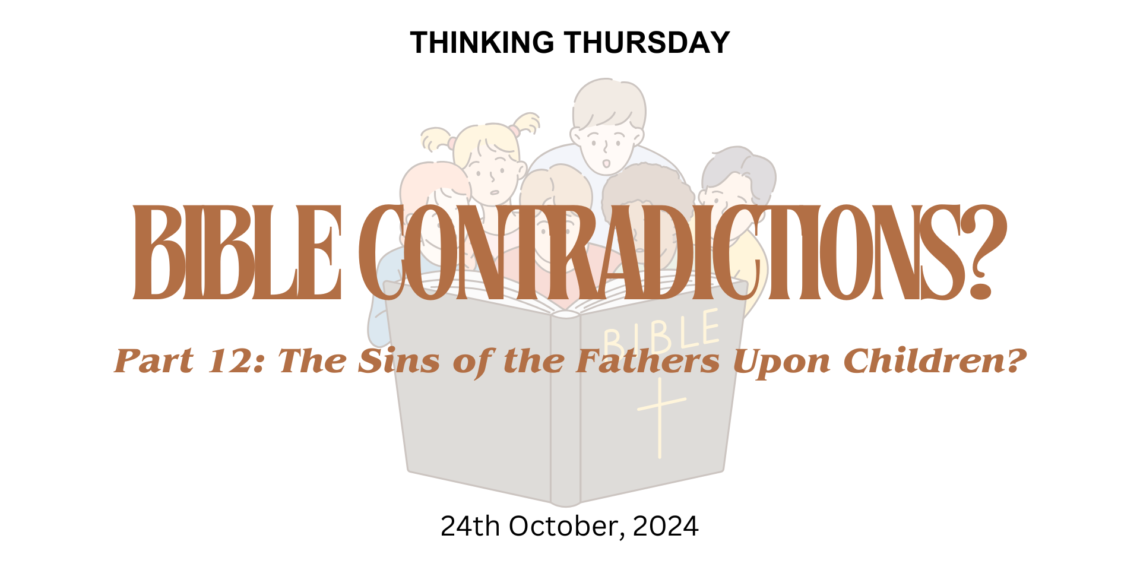Exodus 20:5 “You shall not bow down to them or serve them, for I the Lord your God am a jealous God, visiting the iniquity (lawlessness) of the fathers on the children to the third and the fourth generation of those who hate me.”
Deuteronomy 24:16 Fathers shall not be put to death because of their children, nor shall children be put to death because of their fathers. Each one shall be put to death for his own sin.
If God visits the iniquities of fathers on the children, isn’t it contradictory to later say that children should not be put to death for their father’s sins? Is this where generational curses come from?
READ ALSO: DOES GOD CHARGE FOR MERCY?
THE MEANING:
In Exodus 20:5, the Lord gave the command against idolatry, and it shows that He does not take the sin of idolatry lightly. Exodus 20:5 also reflects the fact that children can imitate the sins of their parents. As such, it is a direct statement that there will be consequences suffered by both: the idolatrous fathers, and the children who continue in their father’s idolatry.
Deuteronomy 24:16, on the other hand, is the basis for the similar teaching in Ezekiel 18, where the Lord prohibits the punishment of sons for the sins of their fathers.
Ezekiel 18:2-4, 18-19 says “What do you people mean by quoting this proverb about the land of Israel: ‘The fathers have eaten sour grapes, and the teeth of the children are set on edge’? As surely as I live, declares the Lord GOD, you will no longer quote this proverb in Israel. Behold, every soul belongs to Me; both father and son are Mine. The soul who sins is the one who will die…. As for his father, he will die for his own iniquity, because he practiced extortion, robbed his brother, and did what was wrong among his people. Yet you may ask, ‘Why shouldn’t the son bear the iniquity of his father?’ Since the son has done what is just and right, carefully observing all My statutes, he will surely live. (BSB)
READ NEXT: BIBLE CONTRADICTIONS (PART 13)
Individual Accountability for Sins
Deuteronomy 24:16 is speaking of the human application of justice, while Exodus 20 speaks of the consequences of actions, especially when the sons follow in the wicked footsteps of their fathers. Deuteronomy 24:16 and Ezekiel 18 focus on individual accountability for sins, while Exodus 20:5 states the reality that a person’s error can have consequences affecting his descendants (especially descendants who continue in the wickedness of their fathers). This also applies to the effects of actions borne out of love for God. In verse 6 of Exodus 20, the Lord goes on to say: but showing loving devotion to a thousand generations of those who love Me and keep My commandments.
Exodus 20:5-6 speaks of the generational impacts of sin and righteousness. It does not mean that children are directly punished for the sins of their parents in a legal sense, but rather that the effects or consequences of the parents’ sins (especially idolatry) can affect future generations.
In summary, Deuteronomy 24:16 speaks of earthly legal justice, ensuring that each person is judged for their own actions, while Exodus 20:5 deals with spiritual consequences, where the effects of sin and righteousness can extend across generations.
How should spouses and divorcees handle financial obligations? Get the biblical answer in this episode!










